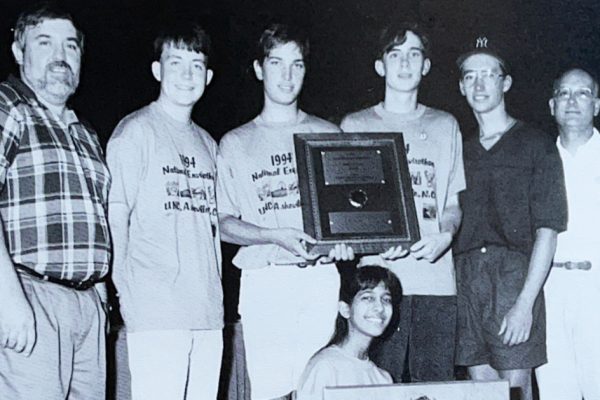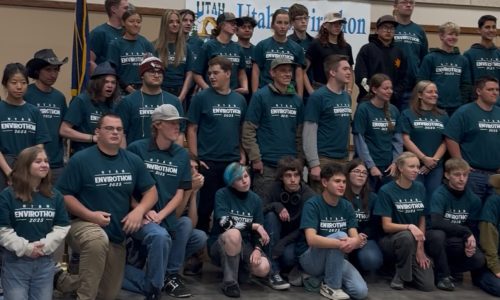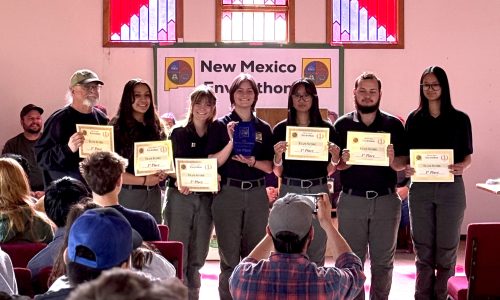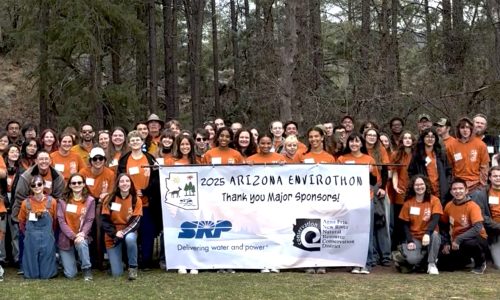
NCF-Envirothon – University of Delaware: College and Career Showcase
March 15, 2022
NCF Announces 2022 NCF-Envirothon Competition
July 8, 2022March 15, 2022

Envirothon Blazed a Trail to My Career in Environmental Economics
- Martin Heintzelman, University of Delaware Department of Applied Economics and Statistics
The NCF-Envirothon competition was one of the most important experiences of my life. I made lifelong memories, learned skills that still provide value 25 years later, and discovered topical interests that have steered my career. My three years of high school Envirothon culminated with a trip to the national competition in Asheville, North Carolina in 1994. In addition to the usual topical competitions on wildlife, aquatics, soils, forests, and current events (acid rain), we visited Mount Mitchell to see the damage of trail erosion, acid rain, and invasive insects firsthand. With those experiences fresh in our minds, we were tasked to devise and present a strategic plan to combat those challenges as if we were forest managers. Five of us worked all night on that presentation — five people that would go on to become economists, an aerospace engineer, a physicist and risk analyst, and a meteorologist. The competition was my first experience with collaborative, interdisciplinary work. I’ve been doing interdisciplinary work ever since!
We won that competition, presenting in front of expert judges and our fellow competitors, in what was exhilarating, stressful and, in the end, a huge boost of confidence for me as I prepared to head off to college. I distinctly remember flying home afterwards, sitting on an airplane with my good friend, and discussing our future careers. I said to him, “I have to find a way to use all that I have learned in Envirothon as I prepare to study economics. I wonder if there is anything called environmental economics.” With that seed planted, I headed off to college. In my very first semester I learned that, indeed, there was such a field. I began tailoring my course of study to focus on preparing for an environmental economics career.
I am very lucky to have been able to pursue that career. Today, I am now a professor of environmental economics at the University of Delaware. Environmental economics applies economic principles and models to environmental problems. Environmental economists seek to understand environmental pollution and over-exploitation of natural resources. We target appropriate goals for environmental quality that balance benefits and costs. We measure (and what are) the social values of environmental quality. And we design environmental policy to achieve environmental goals at least cost and maximum net benefit.
My own work at UD focuses on valuing environmental amenities and the positive and negative social impacts of energy infrastructure. I’ve researched everything from valuing lake water quality to ecosystem integrity to the impact of wind turbines and the value of microgrids for providing power to emergency services. I also study community decision-making regarding open space preservation and rules around fracking.
What is most exciting about this field is how we, as environmental economists, see our work applied in policymaking. For instance, environmental economics is used every day as policymakers consider the social cost of carbon. What are the social damages caused by an additional ton of atmospheric CO2? In turn, the social cost of carbon is a key input to models to help determine policy actions to reduce climate change.
Our work also helps design policies like the Clean Air Act, which greatly reduced acid rain from 1994, when it was the current event at the National Envirothon, to today, and at low cost relatively to the benefits of the program. Environmental economists also contribute locally to land use decisions, conservation programs, and legal cases determining damages from environmental accidents.
Environmental economics is an exciting field where you get to apply the economic logic and statistical techniques to solve real-world environmental problems and form policy solutions. Our field values and requires an interdisciplinary mindset — the very thing that the Envirothon competition works to promote in its participants.
Take a sneak peek at the University of Delaware’s environmental and resource economics major.
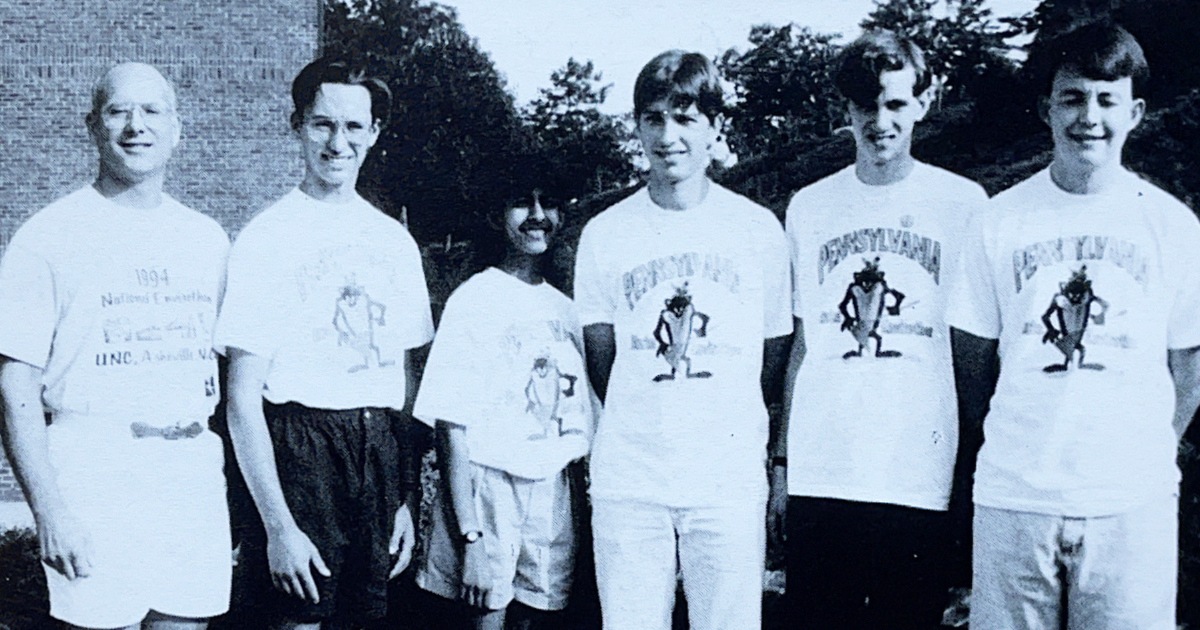
The Parkland High School (Orefield, PA) Envirothon Team of 1994, including the University of Delaware’s Martin Heintzelman, represented the state of Pennsylvania at the national Envirothon competition. From Left to Right: Team advisor and coach Cary Boyer and students Kevin Butler, Monica Singhal, Martin Heintzelman, Joseph Koval, and Gregory Peter
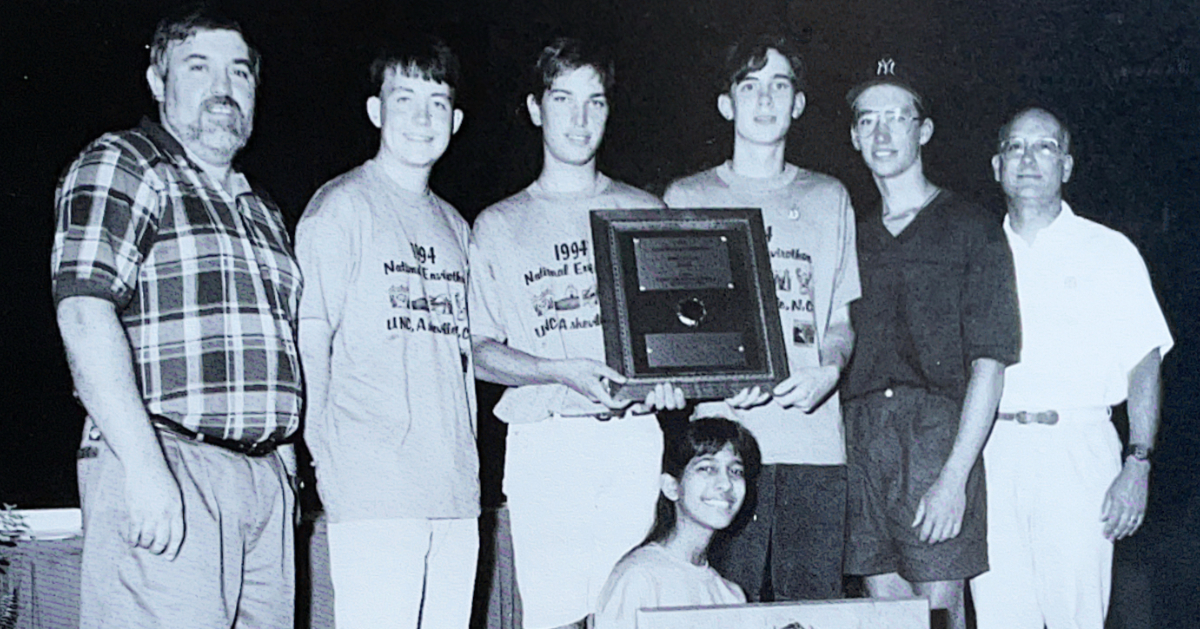
The Parkland High School holds the Envirothon National Championship plaque. From left to right: The Pennsylvania Envirothon chair Bill Kahler stands with student team members, Gregory Peter, Martin Heintzelman, Monica Singhal, Joseph Koval, Kevin Butler, and team advisor Cary Boyer

